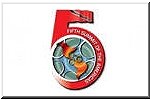
Post-Mortem on Fifth Summit of the Americas: Update
By Dr. Kwame Nantambu
Original Article: April 23, 2009
Updated: June 14, 2009
The Fifth Summit of the Americas 17-19 April 2009 in Trinidad and Tobago has come and gone; its final Declaration of Port-of-Spain was not "signed, sealed and delivered" by all thirty-four (34) participating heads of government but most importantly, hemispheric leaders totally misunderstood, misread and miscalculated the formulation of US foreign policy toward the region.
Other things being equal, there were two main unwritten topics/items on the agenda for the leaders of governments: first, the re-entry/re-admission of Cuba as a full member of the Organization of American States (OAS) and second, the lifting of the US trade/economic embargo against Cuba. All leaders overtly verbalized their respective position, albeit demand, on these issues.
The stark reality is that the OAS Charter is specifically "convinced that representative democracy is an indispensable condition for the stability of peace and development of the region" and that "within the framework of democratic institutions, a system of individual liberty and social justice based on respect for the essential rights of man" must co-exist for membership.
On 23 January 1962, Cuba did not have a democratically-elected government; ergo, Cuba was in overt violation of the criterion for membership in the OAS. Cuba was thus expelled.
In addition, the Declaration of Commitment of Port-of-Spain affirms that "We, the Heads of State and Government of the democratic countries of the Americas..." -- the fact of the matter is that none of the thirty-four Heads of State and Government never overtly and/or covertly objected to this opening sentence of the Declaration. Therefore, these Heads of State and Government excluded Cuba themselves from their deliberations and conclusions.
Now, the only raison d'etre that Cuba has not yet been eligible for re-admission to the OAS is simply because Cuba still does not have a democratically-elected government as of this June 2009 writing. As such, all of the so-called demands by leaders at the Fifth Summit of the Americas tantamount to hemispheric double-talk.
In other words, instead of making public demands on President Barack Obama in regard to Cuba, these leaders needed to look at themselves in the mirror. They need to ensure, albeit demand, that Cuba adheres to the agreed criterion for membership eligibility in the OAS. That was their hemispheric political responsibility; it was not the responsibility of the President of the United States. However, on 3 June 2009, the OAS "unanimously scrapped a 1962 decision that suspended Cuba as Fidel Castro's revolution took the island toward communism and an alliance with the Soviet Union."
The reality of hemispheric geo-politics suggests that even though the 34-membership of the OAS "unanimously" agreed to lift the 1962 suspension of Cuba from the organization "without conditions", the Obama administration must stick to its position that all member states of the OAS, including Cuba, must adhere to the fundamental principles of its Charter. One of these obdurate principles, inter alia, is the existence of a democratically-elected representative government.
The policy position of the Obama administration is very simple: no democratically-elected government in Cuba, no Cuban membership in the OAS. This is a non-negotiable, principled position in keeping with the mandate of the OAS Charter.
Indeed, democratic governance and economic policy will always be natural inseparable twins in US-Cuban relations.
The fact of the matter is that a forty-seven year old US economic/trade embargo policy against Cuba cannot be resolved/overturned in one swoop. US foreign policy does not work that way. Hemispheric leaders at their recent meeting in Honduras have apparently ignored that American decision-making process.
The fact of the matter is that there are geo-political baby steps in US-Cuba relations. The Obama administration has already enacted certain concrete policy decisions whereby travel restrictions have been lifted for Cuban-Americans not only to freely visit families in Cuba but also to be able to send remittances to them and personal items.
As a result of these positive actions by the United States, the ball is now in the Cuban government's court to enact similar geo-political baby steps such as freeing political prisoners, giving all Cubans the right to vote, the right to freedom of speech and assembly, the right to practice their own religion, the right to foreign travel, protection of human rights, economic reform, inter alia.
The fact of the matter is that US relations with Cuba must involve give and take on both sides. President Obama has put his geo-political cards on the table -- the next move is on President Raul Castro of Cuba.
In the final analysis, the lifting of the trade/economic embargo against Cuba is a long, drawn-out process but it should not be a one-sided affair. It takes two to tango. Now is the opportune time for hemispheric leaders to apply pressure on the Cuban government to respond in a most positive manner to the initiatives of President Barack Obama.
They need to realize that there are certain non-negotiable, specific political "conditionality measures" that the Obama administration has laid down not only for the lifting of the trade embargo against Cuba but also for Cuba to be a legitimate member of a democratic hemispheric organization of nations. These leaders cannot have it both ways.
Dr. Kwame Nantambu is a part-time lecturer at Cipriani College of labour and Co-operative Studies and University of the West Indies.
Nantambu's Homepage | Archives | Trinicenter Homepage
|

